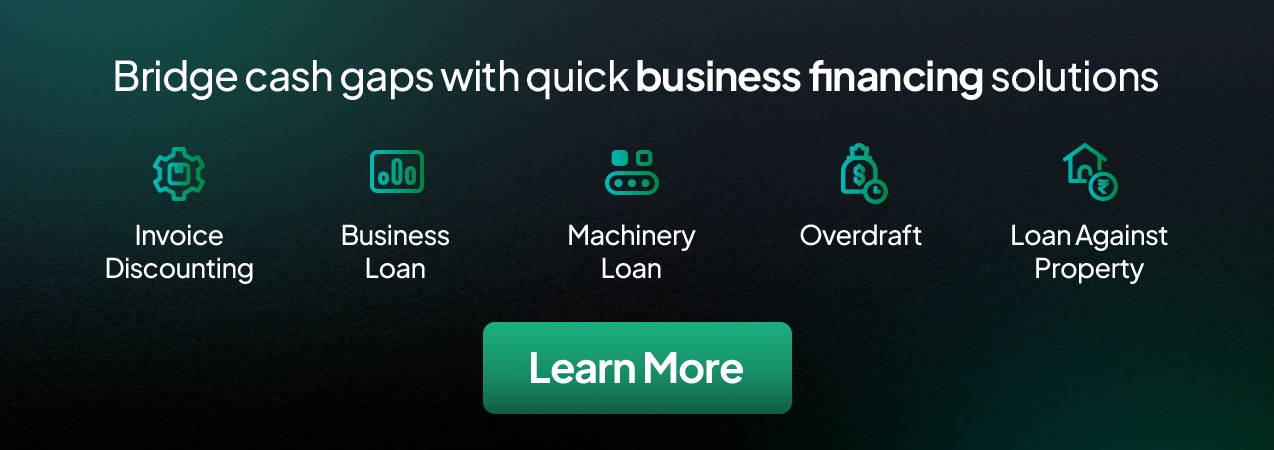What Happens If You Don’t Comply With The GST E Invoice Mandate?

The e Invoice limit of 5 crore has recently been introduced through Notification No. 10/2023–Central Tax and became effective on August 1, 2023. This development is a part of the electronic invoicing system implemented under the Goods and Services Tax (GST) law, which is being rolled out in phases for specific GST-registered taxpayers.
Notification 10/2023, issued on May 10, 2023, amends a prior notification, No. 13/2020 – Central Tax, dated March 21, 2020. Consequently, the GST e-invoice limit, applicable to businesses with turnovers exceeding Rs. 5 crores in any financial year since 2017-18, comes into effect from August 1, 2023.
The sixth phase of e invoicing applies to businesses with an annual aggregate turnover exceeding Rs. 5 crore, effective from August 1, 2023.
To provide context, let's take a look at the previous phases:
Phase I: Introduced on October 1, 2020, this phase applied to businesses with a turnover exceeding Rs. 500 crore.
Phase II: From January 1, 2021, businesses with an annual turnover surpassing Rs. 100 crore adopted e-invoicing.
Phase III: On April 1, 2021, e-invoicing extended to businesses with turnovers exceeding Rs. 50 crore.
Phase IV: In the subsequent year, phase IV lowered the threshold to businesses with a turnover greater than Rs. 20 crore.
Phase V: The most recent phase, launched on October 1, 2022, encompassed businesses with annual turnovers over Rs. 10 crore.
Phase VI : As of August 1, 2023, phase 6 mandates e-invoicing for businesses with an annual turnover of Rs. 5 crore or more.
What is e-invoicing under GST?
E invoice is digitally prepared business-to-business (B2B) invoices that follow an e-invoicing format authenticated by the Goods and Services Tax Network (GSTN) to ensure that a common format is being followed before uploading the invoiced on the GST portal.
Upon completion of successful authentication, a unique Invoice Reference Number (IRN) is generated along with digital authentication signatures, and a QR code for all invoices by the Invoice Registration Portal (IRP). This combined process is called e-invoicing under GST.

What happens if you don’t comply with the GST E invoice Mandate?
Failure to implement e-invoicing for newly added businesses from the specified date can lead to severe penalties. Non-compliant businesses may incur a penalty of Rs. 10,000 for each invoice not generated. Additionally, the absence of an Invoice Reference Number (IRN) is regarded as incomplete invoicing and may result in a penalty of Rs. 25,000 for each incorrect invoice.
The penalty for non-issuance of E-Invoices under GST is a significant aspect of compliance. Here are the key penalties associated with the non-generation of E Invoice:
1. Penalty for Non-Issuance of Invoice:
If a business fails to generate an E Invoice and does not issue a valid tax invoice for GST-related matters, they can face a penalty. This penalty can be either 100% of the tax due or INR 10,000, whichever is higher, for each instance of non-compliance. It's essential for businesses to ensure that they generate and issue E Invoice correctly to avoid these penalties.
2. Penalty for Incorrect Invoice:
If an incorrect E Invoice is generated, a penalty of INR 25,000 may be imposed. It's crucial for businesses to ensure the accuracy of their E-Invoices to avoid this penalty.
3. Detention of Goods and Vehicle:
In cases where goods are transported without a valid E Invoice, the tax department may detain the goods and the vehicle. This can result in additional penalties and delays in the transportation of goods.
4. Impact on E-Way Bill (EWB) Generation:
A valid Invoice Reference Number (IRN) is required for the generation of E-Way Bills (EWBs). If a business fails to generate E Invoice and obtain IRNs, it may face difficulties in EWB generation, which can lead to further penalties related to EWB compliance.
5. Waiver for Timely IRN Generation:
It's worth noting that the government has provided some relief in certain cases. For October 2020, penalties on E Invoice were waived off if the taxpayer generated the IRN within 30 days. This waiver encouraged businesses to comply with E Invoicing requirements within a reasonable timeframe.
In summary, businesses need to be diligent in generating and issuing E Invoice to avoid penalties related to non-compliance, incorrect invoices, and delays in goods transportation. Ensuring accurate and timely E Invoice generation is essential for GST compliance and avoiding financial penalties.

{{blog-form}}
How can Bizongo help you with e Invoicing?
The service explicitly guarantees full compliance with government mandates for businesses with a turnover greater than ₹5 Crores. This assurance gives businesses confidence that they are meeting GST compliance requirements.
Instant E Invoice helps businesses achieve compliance in several ways:
Accuracy and Data Consistency:
By automatically populating accurate invoice details, including taxation, Instant E Invoice minimizes the chances of errors in e invoice. This accuracy is crucial for compliance, as incorrect invoices can lead to disputes and delays in payments.
Auto-Submission:
The feature auto-submits e invoice to the official GST portal. This ensures that invoices are promptly reported to the tax authorities, meeting the compliance requirement of timely submission.
Invoice Reference Number (IRN):
Instant E Invoice triggers the generation of an Invoice Reference Number (IRN) for each e invoice. IRNs are essential for tracking and auditing purposes, contributing to compliance with record-keeping requirements.
Efficiency:
Faster invoice generation and submission, along with quick acceptance by the government portal, contribute to more efficient financial processes. This efficiency can help businesses stay compliant with payment deadlines and reporting obligations.
In summary, Instant E Invoice aids compliance by improving the accuracy and timeliness of e invoice, automating critical processes, and providing a centralized platform for efficient management. It also offers guarantees of GST compliance for businesses, instilling confidence in their adherence to regulatory requirements.
FAQs
1. Is e-Invoicing Applicable for B2C Transactions?
No, e Invoicing is not applicable to B2C (Business-to-Consumer) transactions. However, certain entities are required to generate and print a dynamic QR code for B2C invoices.
2. What Is the Current E-Invoicing Turnover Limit?
The current turnover limit for e-Invoicing is Rs. 10 Crores. However, this limit will be reduced to Rs. 5 Crores starting from August 1, 2023.
3. Do I Need to Generate E Invoices on the Government Portal?
No, taxpayers must generate their e-Invoices through their ERP or billing systems. After generation, these e-Invoices can be authenticated by uploading them on a unified Government Portal.
4. What Should I Do If an E-Invoice Gets Rejected?
E Invoices may be rejected due to incorrect or missing values in mandatory fields or if the invoice number is repeated. In such cases, the e-Invoice must be canceled, and a new eInvoice should be generated within 24 hours.
5. Can E-Invoices Be Modified After Generation?
No, once an e-Invoice is generated, it cannot be modified. If any changes are required, the e-Invoice must be canceled, and a fresh e-Invoice should be generated within 24 hours.
6. Is It Possible to Upload an E-Invoice for a Future Date on the IRP?
No, e-Invoices cannot be generated for a future date. However, e-Invoices can be uploaded to the IRP for a near-future date, typically within 24 to 48 hours.
7. How Can I Verify the Authenticity and Accuracy of an E-Invoice?
To verify the authenticity and correctness of an e-Invoice, you can upload the signed JSON file or the Signed QR Code into the e-Invoicing system and use the 'Verify Signed Invoice' option.
8. Can an IRN Be Deleted or Canceled?
Once an IRN is generated, it cannot be modified or deleted. However, if an IRN is generated with incorrect information, it can be canceled within 24 hours of generation.
If you still have any unresolved doubts or questions, please feel free to ask them in the comment section, and we'll provide answers.




